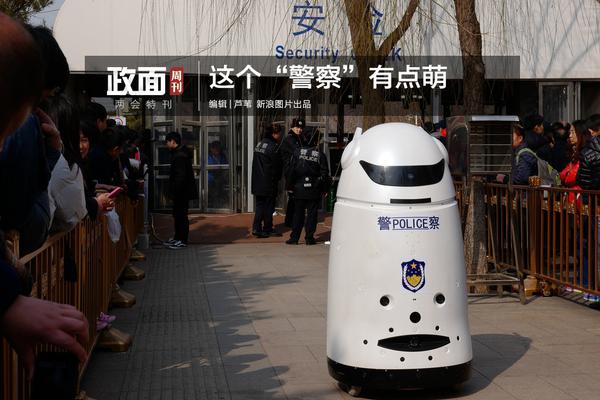
The five functional modules of the operating system are processor management, memory management, device management, file management and operation management. Processor management The most basic function of processor management is to process interrupt events. After configuring the operating system, various events can be processed.
The functions of the computer operating system include: processor management, memory management, device management, file management, job management and other functional modules. Processor management. The most basic function of processor management is to handle interrupt events. The processor can only detect interrupt events and generate interrupts and cannot process them.
Storage management is divided into several functions: storage allocation, storage sharing, storage protection, and storage expansion.Equipment management has the following functions: equipment allocation, equipment transmission control, and equipment independence. File management: file storage space management, directory management, file operation management, file protection.
The operating system should usually include the following five functional modules: (1) Processor management. When multiple programs are running at the same time, solve the problem of processor (cpu) time allocation. ( 2) Operation management. The program to complete an independent task and its required data constitute a task.
The function of the operating system is mainly reflected in the management of computer resources - microprocessors, memory, external devices, files and tasks. The operating system sets this management function into the corresponding program management module, and each management module is responsible for a certain function.That is, the five functions of the operating system.
The operating system has five functions: processor management: mainly controls and manages the work of the CPU. Storage management: mainly carry out memory allocation and management device management: mainly manage basic input and output device file management: responsible for the organization, storage, operation and protection of computer files, etc.

There are the following types of management systems: the management system of the finished product set. This kind of system is a stereotyped management system, which makes a small number of functional adjustments to the software through the parameter settings of the software.
Transaction Processing System (TPS): Operators and supervisors are used to input transactions, events, sort, list, merge updates, output detailed reports, lists and summaries, etc. Management Information System (MIS): Middle managers are used to input general transaction data and simple models to process routine reports.
Adgecal management system Academic management system is one of the most core management systems of the school, which is responsible for arranging and managing the school's teaching activities. It includes curriculum setting, teaching plan, teacher arrangement, examination management and other contents.
VMware vSphere: It is a virtualization management platform that can be used to manage virtual machines, storage and networks, etc. Nagios: It is an open source network monitoring system that can be used to monitor network devices, servers and applications, etc.
Financial subsystem: providing the function of financial management information; Decision support subsystem: make the logistics information system reach a higher level.
ERP management system brand Youyou, Jindie International Software, Wave Software, Dingjie Software, Zhenghang Software. Use friends.
1. System management refers to the information technology system that manages enterprises, and file management is one of the five major functions of the operating system.First, network management refers to the centralized management of resources on the network by network administrators through network management programs.
2. System Management regards organizational components as interrelated and interdependent systems, so it advocates applying the system concept to the management concept.
3. System management refers to the process of maintaining, managing and monitoring computer systems. As an important part of enterprise informatization construction, the importance of computer system management cannot be ignored.
Hearthstone arena deck Builder-APP, download it now, new users will receive a novice gift pack.
The five functional modules of the operating system are processor management, memory management, device management, file management and operation management. Processor management The most basic function of processor management is to process interrupt events. After configuring the operating system, various events can be processed.
The functions of the computer operating system include: processor management, memory management, device management, file management, job management and other functional modules. Processor management. The most basic function of processor management is to handle interrupt events. The processor can only detect interrupt events and generate interrupts and cannot process them.
Storage management is divided into several functions: storage allocation, storage sharing, storage protection, and storage expansion.Equipment management has the following functions: equipment allocation, equipment transmission control, and equipment independence. File management: file storage space management, directory management, file operation management, file protection.
The operating system should usually include the following five functional modules: (1) Processor management. When multiple programs are running at the same time, solve the problem of processor (cpu) time allocation. ( 2) Operation management. The program to complete an independent task and its required data constitute a task.
The function of the operating system is mainly reflected in the management of computer resources - microprocessors, memory, external devices, files and tasks. The operating system sets this management function into the corresponding program management module, and each management module is responsible for a certain function.That is, the five functions of the operating system.
The operating system has five functions: processor management: mainly controls and manages the work of the CPU. Storage management: mainly carry out memory allocation and management device management: mainly manage basic input and output device file management: responsible for the organization, storage, operation and protection of computer files, etc.

There are the following types of management systems: the management system of the finished product set. This kind of system is a stereotyped management system, which makes a small number of functional adjustments to the software through the parameter settings of the software.
Transaction Processing System (TPS): Operators and supervisors are used to input transactions, events, sort, list, merge updates, output detailed reports, lists and summaries, etc. Management Information System (MIS): Middle managers are used to input general transaction data and simple models to process routine reports.
Adgecal management system Academic management system is one of the most core management systems of the school, which is responsible for arranging and managing the school's teaching activities. It includes curriculum setting, teaching plan, teacher arrangement, examination management and other contents.
VMware vSphere: It is a virtualization management platform that can be used to manage virtual machines, storage and networks, etc. Nagios: It is an open source network monitoring system that can be used to monitor network devices, servers and applications, etc.
Financial subsystem: providing the function of financial management information; Decision support subsystem: make the logistics information system reach a higher level.
ERP management system brand Youyou, Jindie International Software, Wave Software, Dingjie Software, Zhenghang Software. Use friends.
1. System management refers to the information technology system that manages enterprises, and file management is one of the five major functions of the operating system.First, network management refers to the centralized management of resources on the network by network administrators through network management programs.
2. System Management regards organizational components as interrelated and interdependent systems, so it advocates applying the system concept to the management concept.
3. System management refers to the process of maintaining, managing and monitoring computer systems. As an important part of enterprise informatization construction, the importance of computer system management cannot be ignored.
Free sports events uefa champions league app android
author: 2025-02-05 13:20100 free bonus casino no deposit GCash
author: 2025-02-05 13:02 Bingo Plus
Bingo Plus
522.24MB
Check European Cup live
European Cup live
257.52MB
Check Hearthstone arena deck Builder
Hearthstone arena deck Builder
243.46MB
Check Casino Plus free 100
Casino Plus free 100
827.38MB
Check LR stock price Philippines
LR stock price Philippines
227.62MB
Check European Cup live
European Cup live
527.41MB
Check Free sports events uefa champions league app android
Free sports events uefa champions league app android
375.76MB
Check PAGCOR online casino free 100
PAGCOR online casino free 100
786.74MB
Check Casino Plus login register
Casino Plus login register
456.52MB
Check UEFA Champions League standings
UEFA Champions League standings
184.36MB
Check Champions League
Champions League
941.28MB
Check Casino free 100 no deposit
Casino free 100 no deposit
346.18MB
Check UEFA Champions League
UEFA Champions League
793.63MB
Check Casino Plus app
Casino Plus app
587.61MB
Check Hearthstone Arena Tier List
Hearthstone Arena Tier List
518.32MB
Check Casino Plus app
Casino Plus app
267.94MB
Check Casino redeem
Casino redeem
369.39MB
Check Hearthstone arena class win rates reddit
Hearthstone arena class win rates reddit
926.12MB
Check PAGCOR online casino free 100
PAGCOR online casino free 100
391.45MB
Check Hearthstone arena
Hearthstone arena
954.79MB
Check DigiPlus Philippine
DigiPlus Philippine
862.72MB
Check Bingo Plus stock
Bingo Plus stock
535.54MB
Check UEFA Champions League live streaming free
UEFA Champions League live streaming free
755.39MB
Check Hearthstone arena deck Builder
Hearthstone arena deck Builder
748.61MB
Check bingo plus update today Philippines
bingo plus update today Philippines
448.14MB
Check Casino free 100 no deposit
Casino free 100 no deposit
425.63MB
Check bingo plus update today Philippines
bingo plus update today Philippines
932.23MB
Check UEFA Champions League live streaming app
UEFA Champions League live streaming app
459.92MB
Check casino plus free 100
casino plus free 100
987.39MB
Check UEFA Champions League live
UEFA Champions League live
584.31MB
Check UEFA European championship
UEFA European championship
267.55MB
Check UEFA Champions League live
UEFA Champions League live
553.44MB
Check DigiPlus
DigiPlus
818.29MB
Check Hearthstone arena
Hearthstone arena
782.82MB
Check DigiPlus Philippine
DigiPlus Philippine
861.92MB
Check TNT Sports
TNT Sports
191.65MB
Check
Scan to install
Hearthstone arena deck Builder to discover more
Netizen comments More
590 UEFA Champions League live streaming app
2025-02-05 15:36 recommend
2038 DigiPlus stock
2025-02-05 15:35 recommend
2721 Casino Plus login register
2025-02-05 15:29 recommend
1493 Casino Plus login register
2025-02-05 15:02 recommend
1408 DigiPlus
2025-02-05 13:52 recommend